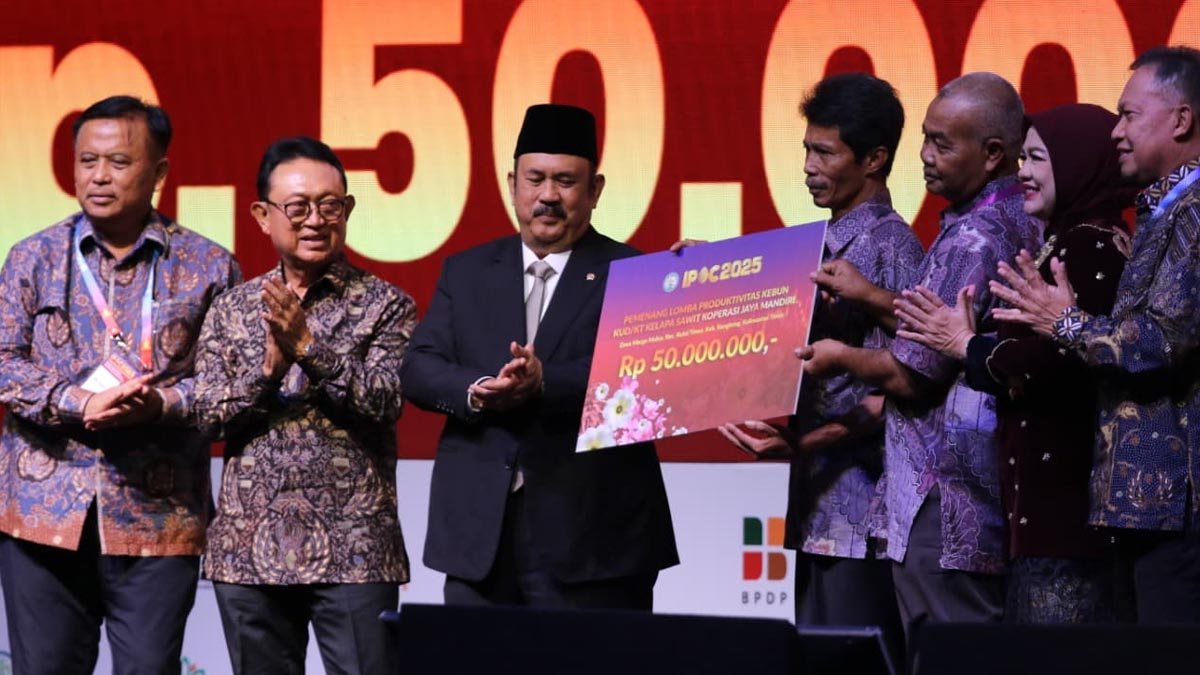PALMOILMAGAZINE, NUSA DUA – Minister of National Development Planning/Head of Bappenas, Rachmat Pambudy, reaffirmed that Indonesia’s palm oil industry will serve as one of the core pillars in realizing the nation’s “Indonesia Emas 2045” vision. He delivered this message during the opening of The 21st Indonesian Palm Oil Conference (IPOC) and 2026 Price Outlook in Nusa Dua, Bali.
In his remarks, Rachmat emphasized that palm oil is more than an economic commodity—it has become a strategic foundation of national development. “Palm oil is not just a commodity. It is a bridge of friendship, peace, and humanity,” he said, as quoted by Palmoilmagazine.com.
Rachmat explained that the world is currently navigating a period of uncertainty, marked by geopolitical tensions and climate pressures. Amid rising global demand for food and energy, Indonesia sees palm oil not as a problem, but as part of the global solution.
Also Read:
According to him, palm oil already plays a crucial role in global food security, renewable energy supply, and daily consumer needs for billions of people.
However, Rachmat underscored that Indonesia’s success should not be measured merely by production volume. What matters more is responsible, inclusive, and sustainable management of the palm oil sector—aligning with the Sustainable Development Goals (SDGs) that guide modern development.
With this commitment, palm oil is expected to become a key engine of Indonesia’s green transformation and a major driver of economic progress toward 2045. He stressed that Indonesia is committed to economic growth that does not harm the environment nor burden future generations.
Rachmat highlighted palm oil’s deep contribution to rural development—providing millions of jobs and supporting downstream industries such as biofuels, oleochemicals, and green manufacturing. These roles make palm oil a significant force in Indonesia’s shift toward a green economy.
“Palm oil is a model of sustainable transformation. It contributes directly to the SDGs by creating green jobs, reducing poverty, and supporting the transition away from fossil fuels,” he said.
Also Read:
Speaking before hundreds of local and international participants, Rachmat also emphasized that smallholders are at the heart of Indonesia’s national palm oil agenda. Fairness for smallholders, plantation workers, and their families must be part of the broader sustainability narrative.
“Fair global trade in palm oil must translate into fairness for smallholders, workers, and their families,” he stressed.
To support this, Bappenas is pushing for regulatory reforms, accelerated smallholder replanting, modernized financing, expanded digital traceability, and strengthened ISPO certification to enhance global credibility. These efforts aim to boost productivity without compromising the environment or farmers’ welfare.
Rachmat also highlighted the importance of downstream development, including the advancement of sustainable aviation fuel (SAF) and high-value biodegradable materials—both integral to Indonesia’s low-carbon and energy-secure future.
Also Read: Minister Rachmat Pambudy: Palm Oil Is a Bridge of Humanity and Sustainable Growth at IPOC 2025
Beyond economic aspects, he emphasized that Indonesia’s palm oil governance draws inspiration from Bali’s local wisdom, Tri Hita Karana: harmony between humans and God (Parahyangan), among people (Pawongan), and with nature (Palemahan). He believes these values can serve as a global foundation for an inclusive, ethical, and just palm oil industry.
“Let this IPOC gathering remind us of the spirit of Tri Hita Karana—harmony among people, nature, and prosperity,” he said.
Rachmat also made it clear that Indonesia will continue resisting discrimination, black campaigns, and trade barriers targeting palm oil. He cited Indonesia’s WTO victory as proof that its palm oil industry meets international standards of fair trade and sustainability.
“This shows that justice and fair play are still possible when we stand firm and speak with evidence,” he stated.
He concluded by calling for stronger collaboration among stakeholders—government, industry players, smallholders, and international partners. Indonesia’s strength in palm oil, he said, lies in its ability to unite global cooperation for shared prosperity.
“Together, we can make palm oil not a source of controversy, but a symbol of partnership. Not a divider, but a bridge for peace and shared growth,” he said. (P3)
